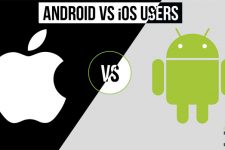
It seems that Apple is focusing itself to filing patent infringement lawsuits against other tech giants more than innovation it has been known for. The American tech company has recently been involved with various patent cases against a bunch of smartphone manufacturers like Samsung and Motorola. Just a few weeks ago, Apple was embarrassingly ordered by an U.K. court to publicly apologize to Samsung, and now it has been slapped with the dismissal of a lawsuit against Motorola in the U.S.
Apple’s crusade against Android received a severe blow when a bench of judges dismissed its appeal against Motorola, now owned by Google. Actually, it started a few months ago when Motorola discovered that some of its patents are used by Apple products. So it demanded Apple to pay 2.25 percent of the price of the Apple products that used its patents. Apple being willing to pay only $1 per device filed a case against Motorola in a U.S. court that was dismissed by the judges on the grounds that the court had not legal authority to hear the case.
Florian Mueller of FOSS Patents observes in this regard as follows:
I think Apple missed an opportunity to make important headway against Motorola Mobility. I don’t know Judge Crabb and I didn’t attend any of the hearings, but I read her orders and I really thought she was very solution-oriented. In fact, I thought she would have been a great judge to preside over a FRAND rate-setting trial — a judge that I think an implementer of FRAND standards could really have trusted to arrive at a fair decision. As long as she considered Apple to be genuinely interested in a solution, as opposed to protracted litigation, she was definitely willing to help put an end to Motorola’s wireless SEP assertions against Apple. But when she started to doubt Apple’s intentions, the case fell apart.
Just after the court’s ruling, a Motorola spokesperson explained that they are still open to any reasonable settlement with Apple: ”Motorola has long offered licensing to our extensive patent portfolio at a reasonable and non-discriminatory rate in line with industry standards.”
via: TechCrunch, FOSS Patents




Join The Discussion: